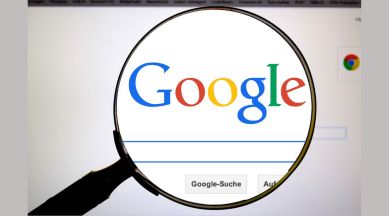
[ad_1]
Google has denied that it deceived anybody over private-browsing, saying its Chrome browser customers consented to the corporate’s knowledge assortment.

Consumers suing Alphabet Inc’s Google LLC over its knowledge assortment practices have misplaced their early attraction to pursue cash damages as a category motion looking for billions of {dollars}.
You have exhausted your
month-to-month restrict of free tales.
To proceed studying,
merely register or register
Continue studying with an Indian Express Premium membership beginning Rs 91 per 30 days.
This premium article is free for now.
Register to proceed studying this story.
This content material is unique for our subscribers.
Subscribe to get limitless entry to The Indian Express unique and premium tales.
This content material is unique for our subscribers.
Subscribe now to get limitless entry to The Indian Express unique and premium tales.
Plaintiffs sued Google in 2020, claiming that Google continued to gather knowledge from customers regardless of their use of private-browsing in Chrome’s “Incognito” mode. The lawsuit seeks a minimum of $5 billion in damages.
The ninth U.S. Circuit Court of Appeals in San Francisco on Wednesday rejected the plaintiffs’ bid to attraction a decrease courtroom choice final yr that denied class motion standing for cash damages claims in opposition to Google.
The plaintiffs had sought an appeals courtroom listening to on the difficulty mid-case and might nonetheless search to revive their cash damages claims when there’s a closing judgment. A jury trial is ready for November.
Class-action standing would imply the plaintiffs may pursue large-scale claims in opposition to Google as a gaggle, versus submitting particular person claims for financial damages. The damages class would come with a minimum of “tens of millions” of Google browser customers, courtroom filings point out.
The plaintiffs, whose attorneys embody veteran litigator David Boies of Boies Schiller Flexner, had argued within the ninth Circuit that the decrease courtroom ruling in December denying class certification on damages “sounds the ‘death knell’ for many users’ damages claims who lack the means to individually litigate this case.”
Google’s attorneys at Quinn Emanuel Urquhart & Sullivan had requested the ninth Circuit to not enable the instant attraction and as a substitute wait to listen to from the events after a closing order.
Google has denied that it deceived anybody over private-browsing, saying its Chrome browser customers consented to the corporate’s knowledge assortment.
A spokesperson for Google declined to touch upon Wednesday’s choice.
Although the choice means the plaintiffs can’t search cash damages as a category, the decrease courtroom had licensed two different courses that may search different aid from Google, together with curbing sure knowledge assortment practices.
Boies and one other plaintiffs’ lawyer didn’t instantly reply to a message on Thursday looking for remark.
The case is Brown et al v. Google LLC, ninth U.S. Circuit Court of Appeals, No. 22-80147.
For plaintiffs: David Boies and Mark Mao of Boies Schiller Flexner; Bill Carmody of Susman Godfrey; and John Yanchunis of Morgan & Morgan
For defendant: Andrew Schapiro, Diane Doolittle and Stephen Broome of Quinn Emanuel Urquhart & Sullivan
[adinserter block=”4″]
[ad_2]
Source link